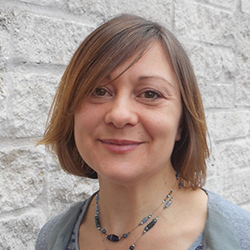
The National Institute for Health Research (NIHR) believes it is important to involve patients and the public in all our work.
That is why I’m delighted that a collaborative initiative to capture the difference involving patients and the public in research as been adopted internationally. A new Researchfish set of additional questions (used at the request of the funders) allows researchers to report how people have been involved in research and the difference involvement has made to their research consistently. By working collaboratively, funders have developed a common approach to tracking the nature of involvement, success factors, challenges encountered and the difference involvement makes.
Funders have been working hard to support and encourage the research community and embed involvement in research design and delivery. In January 2018 I wrote a blog to let people know more about the first stage of development of a new question set in Researchfish focusing on Patient and Public Involvement (PPI). Little did I know that this would ignite global interest! People got in touch from far and wide including colleagues in Europe, North America and New Zealand wanting to know more. Nearly a year on there is more to add to this story.
Since the questions were launched in November 2017, 11 funders have used the question set we co-designed. Each funder supports research in different areas of health and all are committed to enhancing public involvement in the research they fund. As of October 2018, this has generated a total of 1,481 responses from researchers. These researchers are based in the UK, Denmark, The Netherlands and Australia. And the data they have provided describes how people are involved in research, the factors that contribute to successful involvement, and the challenges researchers face. Critically, researchers also explain what difference involvement made to their research.
Reflecting on our work together – two things strike me:
- The level of involvement reduces as research progresses. Our initial analysis suggests that as a research community we are doing really well involving people in the early stages of research such as identifying and prioritising research questions. But these fantastic beginnings tail off as research moves into data analysis, writing up and sharing our learning. This makes me wonder – are we missing a trick? Is all this fantastic early effort being wasted? How much more impactful would our research be if more patients, carers and members of the public were involved in shaping research findings and sharing what we have learned?
- Funders want to collaborate and use data to improve practice. Our discussions have centred on the need to minimise the reporting burden on researchers whilst maximising the value a consistent reporting method can bring. If we use common tools – could we reduce duplication of effort? Can we link this information with other sources? Can we undertake comparative analysis and analyse trends over time?
Working together hasn’t been without its challenges, the greatest being staff changes, and maintaining contact and momentum over an extended period of time. But the desire to collaborate has overcome these challenges. The benefits and learning we have gained has been worth the effort. Working together in this way means we have developed a common approach – and – a common data set. This in turn makes it easier to work together in the future.
We have developed a consistent method to report PPI in research that works in different countries, and can be used to build a picture of involvement over time. It is down to us as a community to make best use of this amazing data resource to improve our practice. What do you think we should do next? If you’d like to learn more or to get involved then please do get in touch.
Finally, a note of thanks to those organisations that have collaborated to make this idea a reality: Marie Curie (UK), Cancer Research UK, ReumaNederland (Netherlands), Parkinsons UK, Arthritis Research UK, MND Association (UK), Public Health Agency (Northern Ireland, UK), Research Fish Ltd, INVOLVE (UK), The Danish Cancer Society (Denmark), Chief Scientist Office (Scotland), National Breast Cancer Foundation (Australia), Cystic Fibrosis Trust (UK).